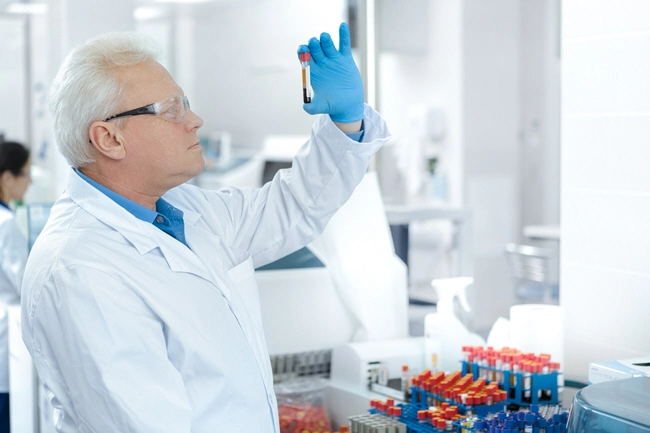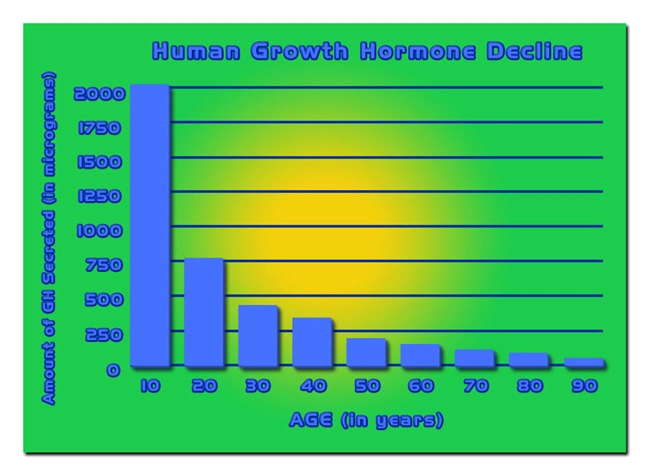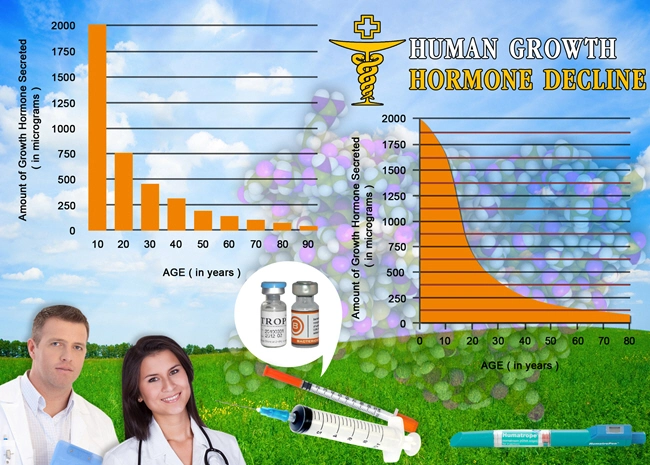
Introduction
Hypogonadism, characterized by the body's inability to produce sufficient testosterone, affects a significant number of American males. This condition not only impacts sexual health but also has broader implications for metabolic health, including an increased risk for developing Type 2 diabetes. Delatestryl, a testosterone replacement therapy developed by Endo Pharmaceuticals, has been under scrutiny for its potential to mitigate these risks. This article delves into the effectiveness of Delatestryl in reducing the risk of Type 2 diabetes among American males diagnosed with hypogonadism.
Understanding Hypogonadism and Its Link to Type 2 Diabetes
Hypogonadism leads to a myriad of symptoms including decreased libido, fatigue, and muscle loss, but its metabolic effects are equally concerning. Research has established a strong correlation between low testosterone levels and an increased risk of Type 2 diabetes. The underlying mechanisms involve insulin resistance and altered fat distribution, both of which are exacerbated in hypogonadal men. Addressing testosterone deficiency, therefore, becomes crucial not only for improving quality of life but also for preventing metabolic diseases.
Delatestryl: Mechanism and Administration
Delatestryl is a long-acting form of testosterone administered via intramuscular injection. Its active ingredient, testosterone enanthate, is designed to gradually release testosterone into the bloodstream, maintaining stable levels over time. This method of administration is particularly beneficial for patients requiring consistent hormone levels to manage symptoms and potentially reduce the risk of diabetes.
Clinical Evidence on Delatestryl and Diabetes Risk
Several clinical studies have investigated the impact of testosterone replacement therapy, including Delatestryl, on metabolic health. A notable study published in the *Journal of Clinical Endocrinology & Metabolism* found that men receiving testosterone therapy experienced significant improvements in insulin sensitivity and glucose metabolism. Another study highlighted in *Diabetes Care* showed a reduction in HbA1c levels among hypogonadal men treated with Delatestryl, suggesting a decreased risk of developing Type 2 diabetes.
Safety and Side Effects
While Delatestryl shows promise in reducing diabetes risk, it is essential to consider its safety profile. Common side effects include acne, increased red blood cell count, and potential mood swings. More serious risks, such as an increased chance of cardiovascular events, have been noted in some studies, necessitating careful patient selection and monitoring. Healthcare providers must weigh these risks against the potential benefits, particularly in patients with existing cardiovascular conditions.
Patient Selection and Monitoring
The decision to initiate Delatestryl therapy should be made on a case-by-case basis, considering the patient's overall health, testosterone levels, and risk factors for diabetes. Regular monitoring of blood glucose levels, HbA1c, and testosterone levels is crucial to assess the therapy's effectiveness and safety. Additionally, lifestyle interventions such as diet and exercise should be integrated to maximize the benefits of testosterone replacement therapy.
Conclusion
Delatestryl offers a promising avenue for reducing the risk of Type 2 diabetes in American males with hypogonadism. By improving insulin sensitivity and glucose metabolism, this testosterone replacement therapy can play a vital role in managing the metabolic health of affected individuals. However, its use must be carefully managed to mitigate potential side effects and ensure safety. As research continues to evolve, Delatestryl's role in preventive healthcare for hypogonadal men may become even more significant, offering hope for improved health outcomes in this population.
Contact Us Today For A Free Consultation
Dear Patient,
Once you have completing the above contact form, for security purposes and confirmation, please confirm your information by calling us.
Please call now: 1-800-380-5339.
Welcoming You To Our Clinic, Professor Tom Henderson.

- Delatestryl: Advancing Testosterone Replacement Therapy for American Men [Last Updated On: March 17th, 2025] [Originally Added On: March 17th, 2025]
- Delatestryl: Safe, Effective Testosterone Therapy for American Males with Hypogonadism [Last Updated On: March 18th, 2025] [Originally Added On: March 18th, 2025]
- Delatestryl: Enhancing Sexual Health in American Men with Hypogonadism [Last Updated On: March 18th, 2025] [Originally Added On: March 18th, 2025]
- Delatestryl: Enhancing Bone Density in Hypogonadal American Males Through Testosterone Therapy [Last Updated On: March 19th, 2025] [Originally Added On: March 19th, 2025]
- Delatestryl: Revolutionizing Hormone Replacement Therapy for American Males [Last Updated On: March 19th, 2025] [Originally Added On: March 19th, 2025]
- Delatestryl: Revolutionizing Testosterone Replacement for American Men's Health [Last Updated On: March 19th, 2025] [Originally Added On: March 19th, 2025]
- Delatestryl: Enhancing Men's Health with Testosterone Replacement Therapy [Last Updated On: March 20th, 2025] [Originally Added On: March 20th, 2025]
- Delatestryl: Enhancing Athletic Performance and Health in American Male Athletes [Last Updated On: March 20th, 2025] [Originally Added On: March 20th, 2025]
- Delatestryl: Enhancing Mood, Energy, and Cognition in American Men with Testosterone Deficiency [Last Updated On: March 20th, 2025] [Originally Added On: March 20th, 2025]
- Delatestryl: Long-Acting Testosterone Therapy for Androgen Deficiency in American Males [Last Updated On: March 21st, 2025] [Originally Added On: March 21st, 2025]
- Delatestryl: Enhancing American Men's Health with Testosterone Therapy [Last Updated On: March 21st, 2025] [Originally Added On: March 21st, 2025]
- Delatestryl: Endo's Injectable Testosterone Therapy for American Men's Low T [Last Updated On: March 21st, 2025] [Originally Added On: March 21st, 2025]
- Delatestryl: Enhancing Cardiovascular Health Through Testosterone Replacement Therapy [Last Updated On: March 22nd, 2025] [Originally Added On: March 22nd, 2025]
- Delatestryl: Enhancing Muscle Mass and Health in American Men with TRT [Last Updated On: March 22nd, 2025] [Originally Added On: March 22nd, 2025]
- Delatestryl: Revolutionizing Hypogonadism Treatment for American Men [Last Updated On: March 22nd, 2025] [Originally Added On: March 22nd, 2025]
- Delatestryl: Advancing Testosterone Therapy for American Men's Health [Last Updated On: March 22nd, 2025] [Originally Added On: March 22nd, 2025]
- Delatestryl: A Comprehensive Solution for Low Testosterone in American Men [Last Updated On: March 23rd, 2025] [Originally Added On: March 23rd, 2025]
- Delatestryl: Enhancing Immune Health in American Males with Testosterone Therapy [Last Updated On: March 23rd, 2025] [Originally Added On: March 23rd, 2025]
- Delatestryl: Enhancing Life Quality for American Male Cancer Survivors [Last Updated On: March 24th, 2025] [Originally Added On: March 24th, 2025]
- Delatestryl: Advancing Liver Health in American Men with Testosterone Therapy [Last Updated On: March 24th, 2025] [Originally Added On: March 24th, 2025]
- Delatestryl: Revolutionizing Fatigue and Low Testosterone Treatment in American Men [Last Updated On: March 24th, 2025] [Originally Added On: March 24th, 2025]
- Delatestryl: A Breakthrough in Chronic Pain Management for American Men [Last Updated On: March 24th, 2025] [Originally Added On: March 24th, 2025]
- Delatestryl: Revolutionizing Men's Skin Health with Testosterone Therapy [Last Updated On: March 24th, 2025] [Originally Added On: March 24th, 2025]
- Delatestryl: Enhancing Longevity in American Males with Testosterone Deficiency [Last Updated On: March 24th, 2025] [Originally Added On: March 24th, 2025]
- Delatestryl: Enhancing Bladder Health in American Males with Low Testosterone [Last Updated On: March 25th, 2025] [Originally Added On: March 25th, 2025]
- Delatestryl: Enhancing Men's Mental Health by Treating Hypogonadism [Last Updated On: March 25th, 2025] [Originally Added On: March 25th, 2025]
- Delatestryl: Enhancing Cognitive Function in American Males with Low Testosterone [Last Updated On: March 25th, 2025] [Originally Added On: March 25th, 2025]
- Delatestryl: A Promising Tool for Weight Management in American Males [Last Updated On: March 25th, 2025] [Originally Added On: March 25th, 2025]
- Delatestryl's New Frontier: Enhancing Digestive Health in American Men [Last Updated On: March 25th, 2025] [Originally Added On: March 25th, 2025]
- Delatestryl: Advancing Diabetes Management for American Men with Testosterone Therapy [Last Updated On: March 25th, 2025] [Originally Added On: March 25th, 2025]
- Delatestryl: Enhancing Dental Health in American Men Through Testosterone Therapy [Last Updated On: March 25th, 2025] [Originally Added On: March 25th, 2025]
- Delatestryl: Advancing Prostate Health Management in American Men [Last Updated On: March 25th, 2025] [Originally Added On: March 25th, 2025]
- Delatestryl: Boosting Confidence and Health in American Men with Testosterone Therapy [Last Updated On: March 26th, 2025] [Originally Added On: March 26th, 2025]
- Delatestryl: Revolutionizing Lung Health for American Men [Last Updated On: March 26th, 2025] [Originally Added On: March 26th, 2025]
- Delatestryl: Innovative Testosterone Ester Treatment for Male Pattern Baldness in American Men [Last Updated On: March 26th, 2025] [Originally Added On: March 26th, 2025]
- Delatestryl by Endo: Boosting Thyroid Health in American Men [Last Updated On: March 26th, 2025] [Originally Added On: March 26th, 2025]
- Delatestryl: Enhancing Male Libido Through Testosterone Therapy by Endo Pharmaceuticals [Last Updated On: March 26th, 2025] [Originally Added On: March 26th, 2025]
- Delatestryl Linked to Hearing Loss in American Males: Endo Pharmaceuticals' Study [Last Updated On: March 26th, 2025] [Originally Added On: March 26th, 2025]
- Delatestryl: Enhancing Sleep Quality in American Men via Testosterone Therapy [Last Updated On: March 26th, 2025] [Originally Added On: March 26th, 2025]
- Delatestryl: Enhancing Respiratory Health in American Men with Testosterone Therapy [Last Updated On: March 27th, 2025] [Originally Added On: March 27th, 2025]
- Delatestryl by Endo: Enhancing Vision Health in American Males Through Testosterone Therapy [Last Updated On: March 27th, 2025] [Originally Added On: March 27th, 2025]
- Delatestryl: Enhancing Kidney Health in American Males Through Testosterone Therapy [Last Updated On: March 27th, 2025] [Originally Added On: March 27th, 2025]
- Delatestryl: Enhancing Joint Health in American Males with Testosterone Therapy [Last Updated On: March 27th, 2025] [Originally Added On: March 27th, 2025]
- Delatestryl: Enhancing Spleen Health in American Males Through Testosterone Therapy [Last Updated On: March 28th, 2025] [Originally Added On: March 28th, 2025]
- Delatestryl: Enhancing Adrenal Health in American Males Through Testosterone Support [Last Updated On: March 28th, 2025] [Originally Added On: March 28th, 2025]
- Delatestryl's Impact on Heart Health in American Males: Endo Pharmaceuticals' Findings [Last Updated On: March 28th, 2025] [Originally Added On: March 28th, 2025]
- Delatestryl: Enhancing Nervous System Health for American Men [Last Updated On: March 29th, 2025] [Originally Added On: March 29th, 2025]
- Delatestryl: Enhancing Pancreatic Health in American Men Through Testosterone Therapy [Last Updated On: March 29th, 2025] [Originally Added On: March 29th, 2025]
- Delatestryl's Impact on Lymphatic Health in American Males: Endo Pharmaceuticals' Study [Last Updated On: March 30th, 2025] [Originally Added On: March 30th, 2025]
- Delatestryl: A Promising Treatment for Gallbladder Disease in American Men [Last Updated On: March 30th, 2025] [Originally Added On: March 30th, 2025]
- Delatestryl: Enhancing Muscle and Bone Health in American Males [Last Updated On: March 30th, 2025] [Originally Added On: March 30th, 2025]
- Delatestryl: A Breakthrough in Testosterone Deficiency Treatment for American Men [Last Updated On: March 31st, 2025] [Originally Added On: March 31st, 2025]
- Delatestryl: Revolutionizing Hypogonadism Treatment for American Males [Last Updated On: April 2nd, 2025] [Originally Added On: April 2nd, 2025]
- Delatestryl: Advancing Urological Health in American Males with Testosterone Therapy [Last Updated On: April 3rd, 2025] [Originally Added On: April 3rd, 2025]
- Delatestryl: Advancing Men's Integumentary Health with Testosterone Enanthate [Last Updated On: April 5th, 2025] [Originally Added On: April 5th, 2025]
- Delatestryl: Advancing Neurological Health in American Males with Testosterone Therapy [Last Updated On: April 7th, 2025] [Originally Added On: April 7th, 2025]
- Delatestryl: Advancing Men's Health with Testosterone Supplementation [Last Updated On: April 9th, 2025] [Originally Added On: April 9th, 2025]
- Delatestryl: Advancing Cardiovascular Health in American Men with Testosterone Therapy [Last Updated On: April 9th, 2025] [Originally Added On: April 9th, 2025]
- Delatestryl's Impact on Respiratory Health in American Males: Benefits and Considerations [Last Updated On: April 9th, 2025] [Originally Added On: April 9th, 2025]
- Delatestryl: Enhancing Metabolic Health in American Men with Testosterone Therapy [Last Updated On: April 9th, 2025] [Originally Added On: April 9th, 2025]
- Delatestryl: Enhancing Environmental Health in American Men Through Hormone Therapy [Last Updated On: April 9th, 2025] [Originally Added On: April 9th, 2025]
- Delatestryl: Enhancing Men's Gastrointestinal Health Through Testosterone Therapy [Last Updated On: April 10th, 2025] [Originally Added On: April 10th, 2025]
- Delatestryl's Impact on Immune System in American Males: Endo Pharmaceuticals' Research [Last Updated On: April 10th, 2025] [Originally Added On: April 10th, 2025]
- Delatestryl: Enhancing Men's Occupational Health with Testosterone Therapy [Last Updated On: April 11th, 2025] [Originally Added On: April 11th, 2025]
- Delatestryl: Enhancing Genetic Health in American Males through Testosterone Therapy [Last Updated On: April 11th, 2025] [Originally Added On: April 11th, 2025]
- Delatestryl: Enhancing Hematological Health in American Men with Low Testosterone [Last Updated On: April 12th, 2025] [Originally Added On: April 12th, 2025]
- Delatestryl: Enhancing Psychological Health in American Males with Testosterone Therapy [Last Updated On: April 15th, 2025] [Originally Added On: April 15th, 2025]
- Delatestryl: Enhancing Men's Social Health Through Testosterone Therapy [Last Updated On: April 15th, 2025] [Originally Added On: April 15th, 2025]
- Delatestryl: Enhancing American Men's Health Through Sustained Testosterone Therapy [Last Updated On: April 15th, 2025] [Originally Added On: April 15th, 2025]
- Delatestryl: Enhancing Male Health with Testosterone Enanthate Injection [Last Updated On: April 15th, 2025] [Originally Added On: April 15th, 2025]
- Delatestryl Enhances Cognitive Function in American Males: Endo's Breakthrough [Last Updated On: April 16th, 2025] [Originally Added On: April 16th, 2025]
- Delatestryl: Advancing Men's Health with Injectable Testosterone Therapy [Last Updated On: April 17th, 2025] [Originally Added On: April 17th, 2025]
- Delatestryl: Enhancing Behavioral Health in American Men Through Testosterone Therapy [Last Updated On: April 17th, 2025] [Originally Added On: April 17th, 2025]
- Delatestryl: A Breakthrough in Testosterone Therapy for Hypogonadism Management [Last Updated On: April 18th, 2025] [Originally Added On: April 18th, 2025]
- Delatestryl: Enhancing Men's Emotional Health Through Testosterone Therapy [Last Updated On: April 18th, 2025] [Originally Added On: April 18th, 2025]
- Delatestryl: Enhancing Hormonal Health in American Males with Testosterone Therapy [Last Updated On: April 18th, 2025] [Originally Added On: April 18th, 2025]
- Delatestryl: Enhancing American Male Health and Spiritual Well-being [Last Updated On: April 19th, 2025] [Originally Added On: April 19th, 2025]
- Delatestryl: Enhancing Life for American Males with Hypogonadism [Last Updated On: April 22nd, 2025] [Originally Added On: April 22nd, 2025]
- Delatestryl: Enhancing Male Health and Vitality in American Men [Last Updated On: April 22nd, 2025] [Originally Added On: April 22nd, 2025]
- Delatestryl: Enhancing American Men's Health with Testosterone Therapy [Last Updated On: April 22nd, 2025] [Originally Added On: April 22nd, 2025]








